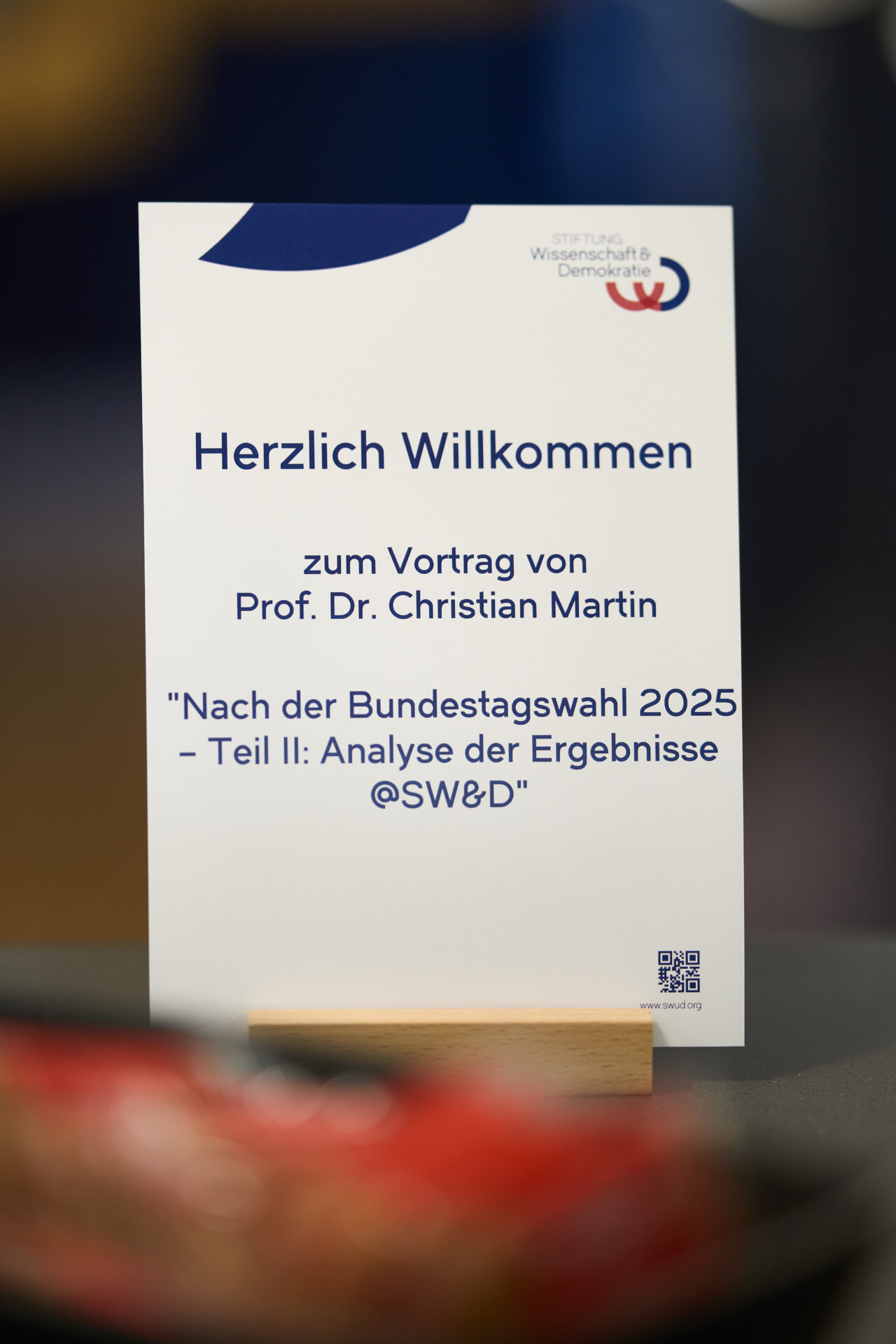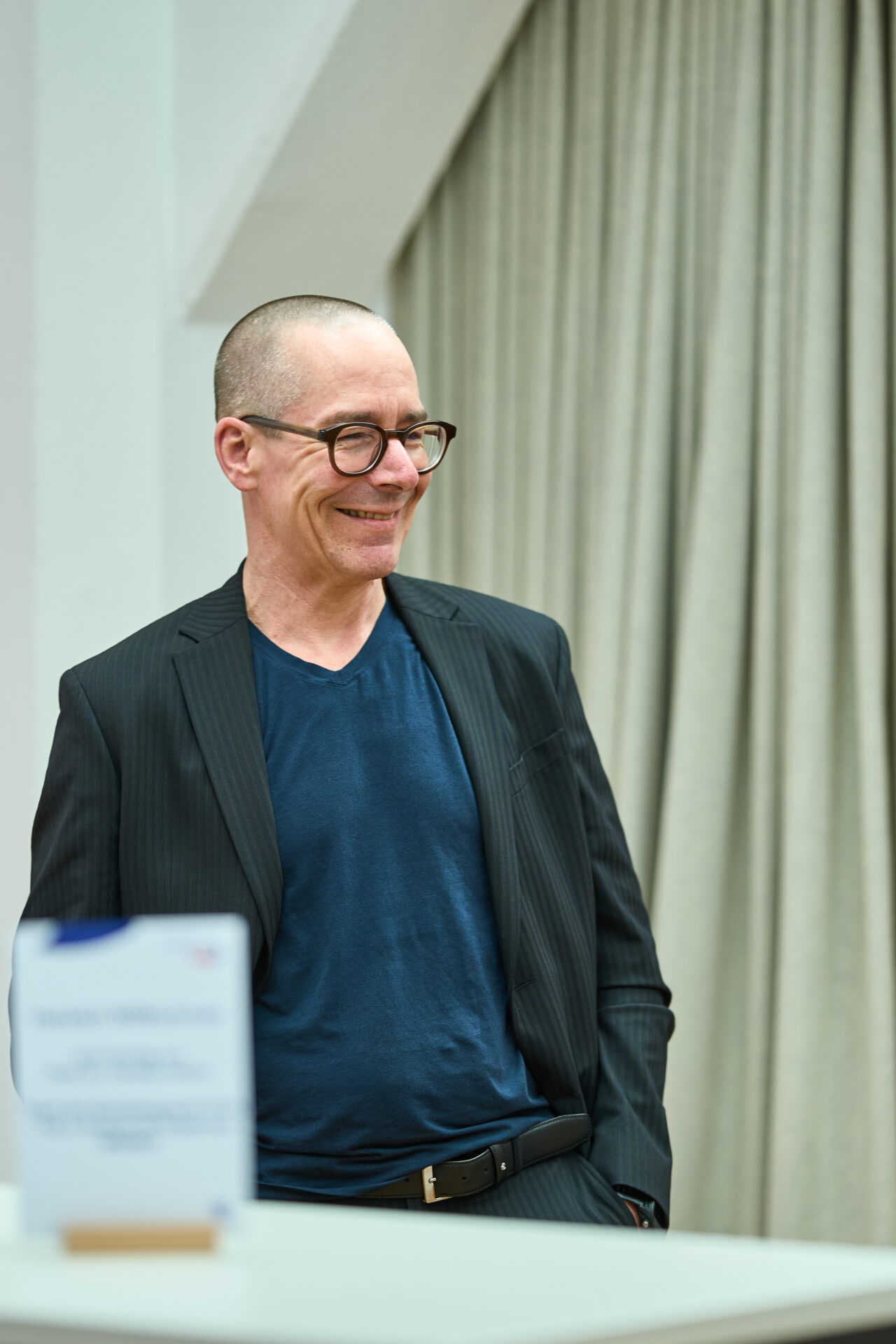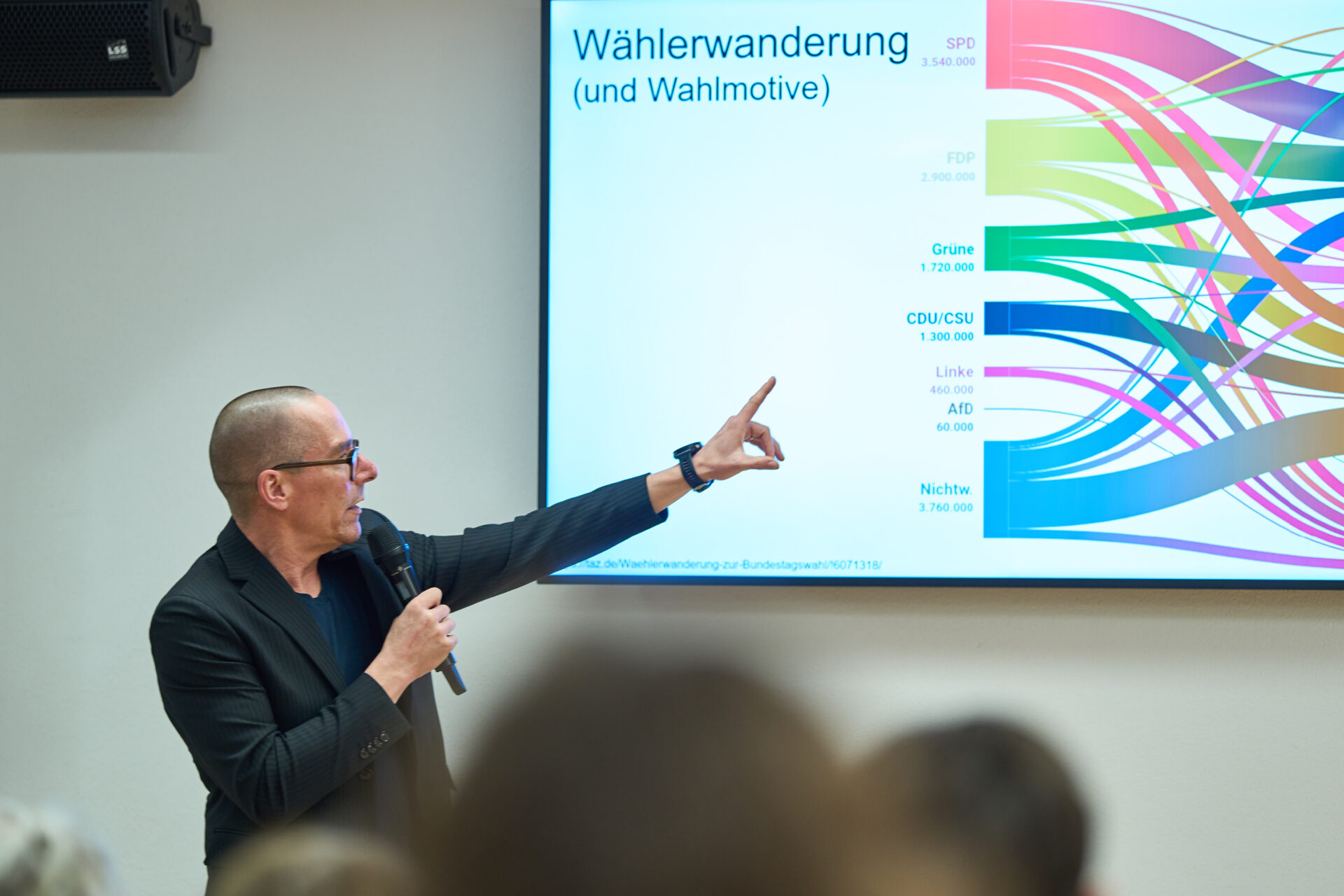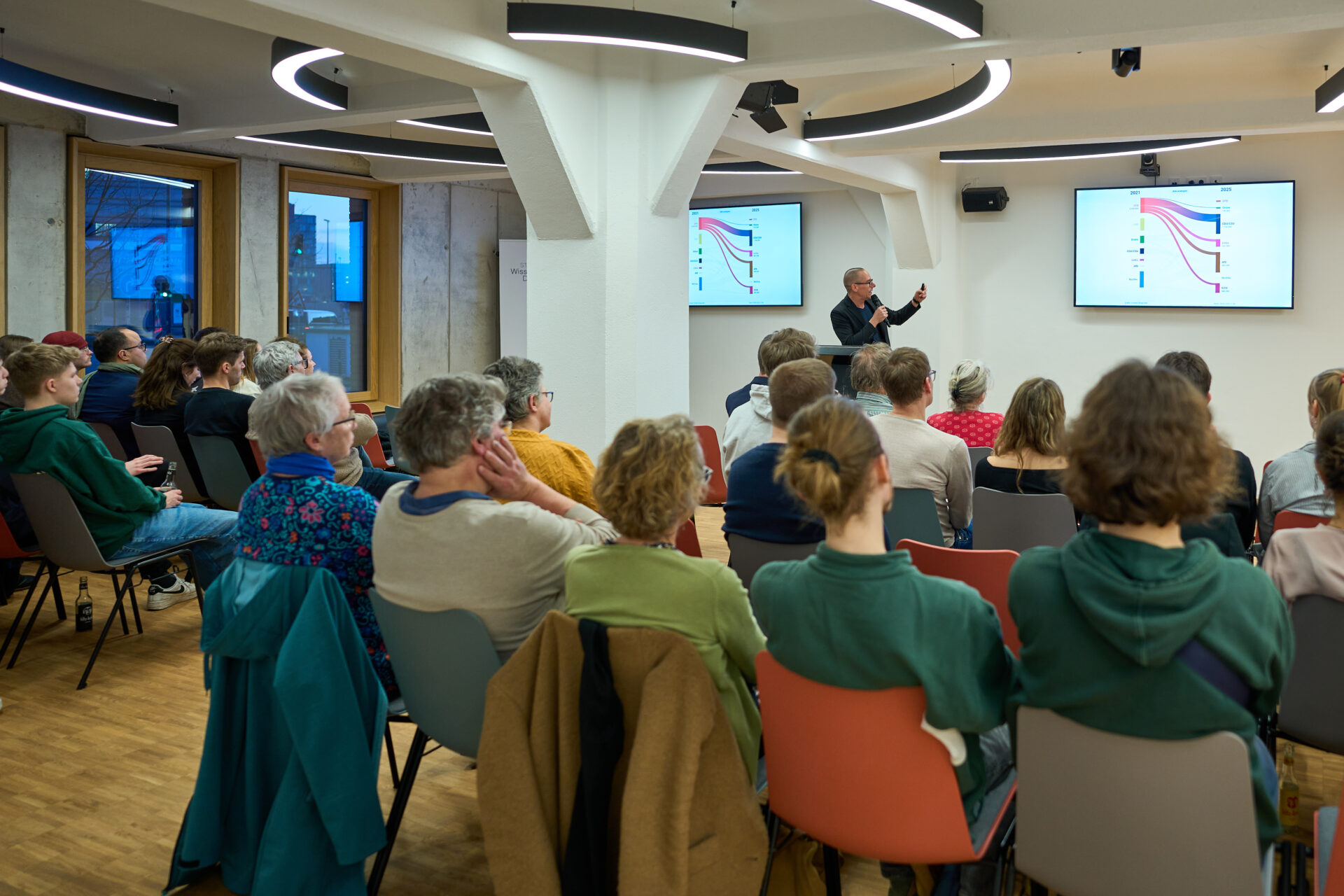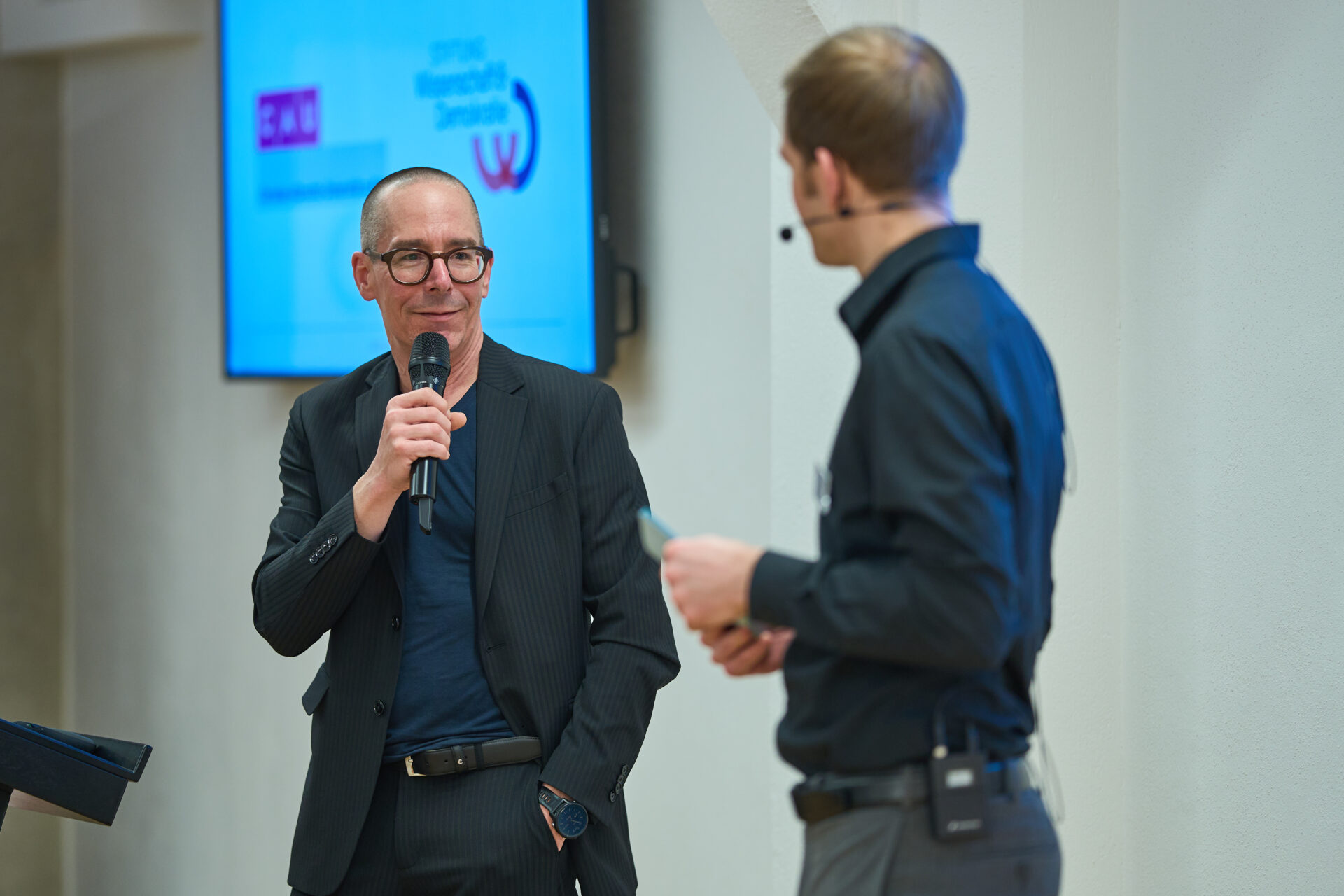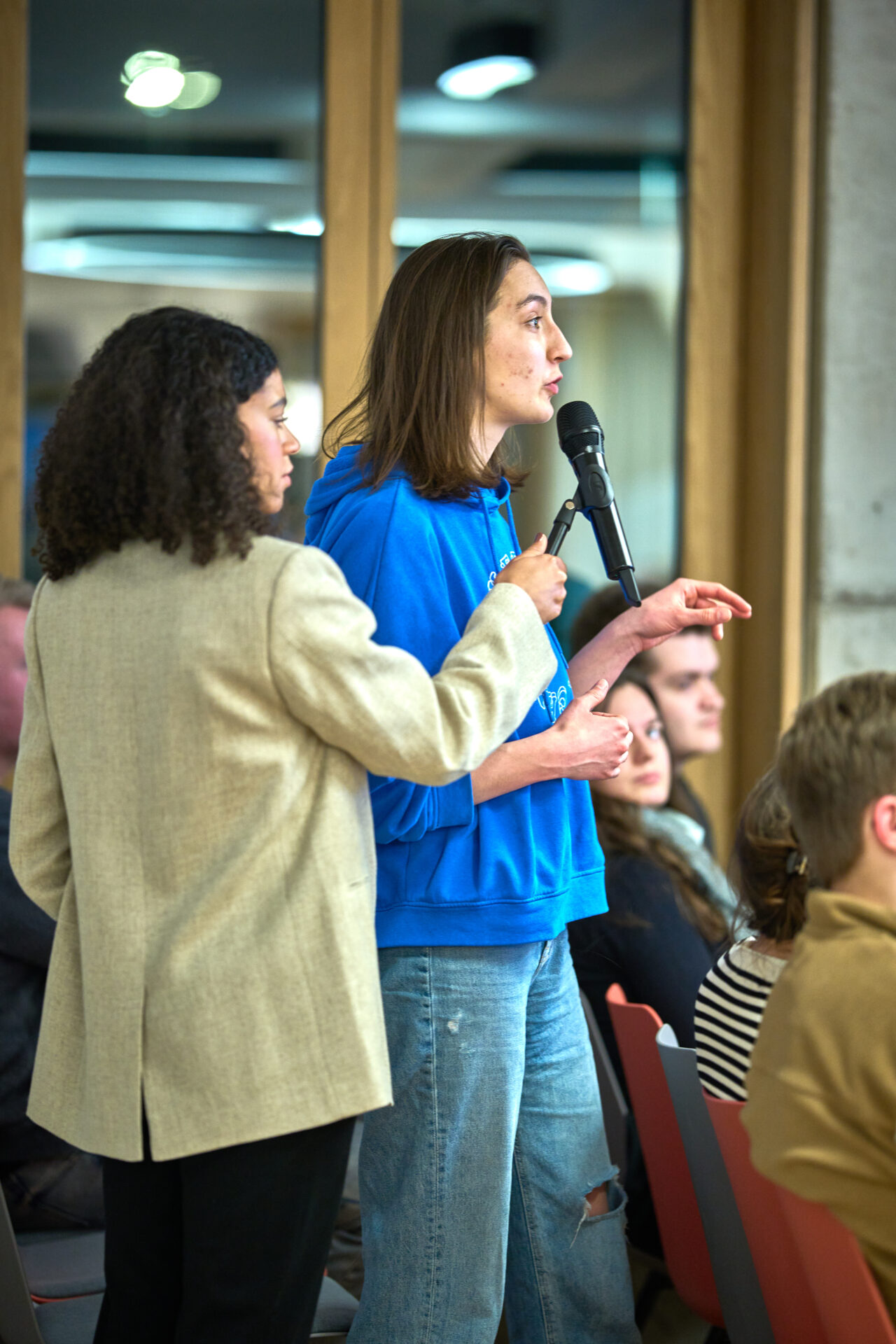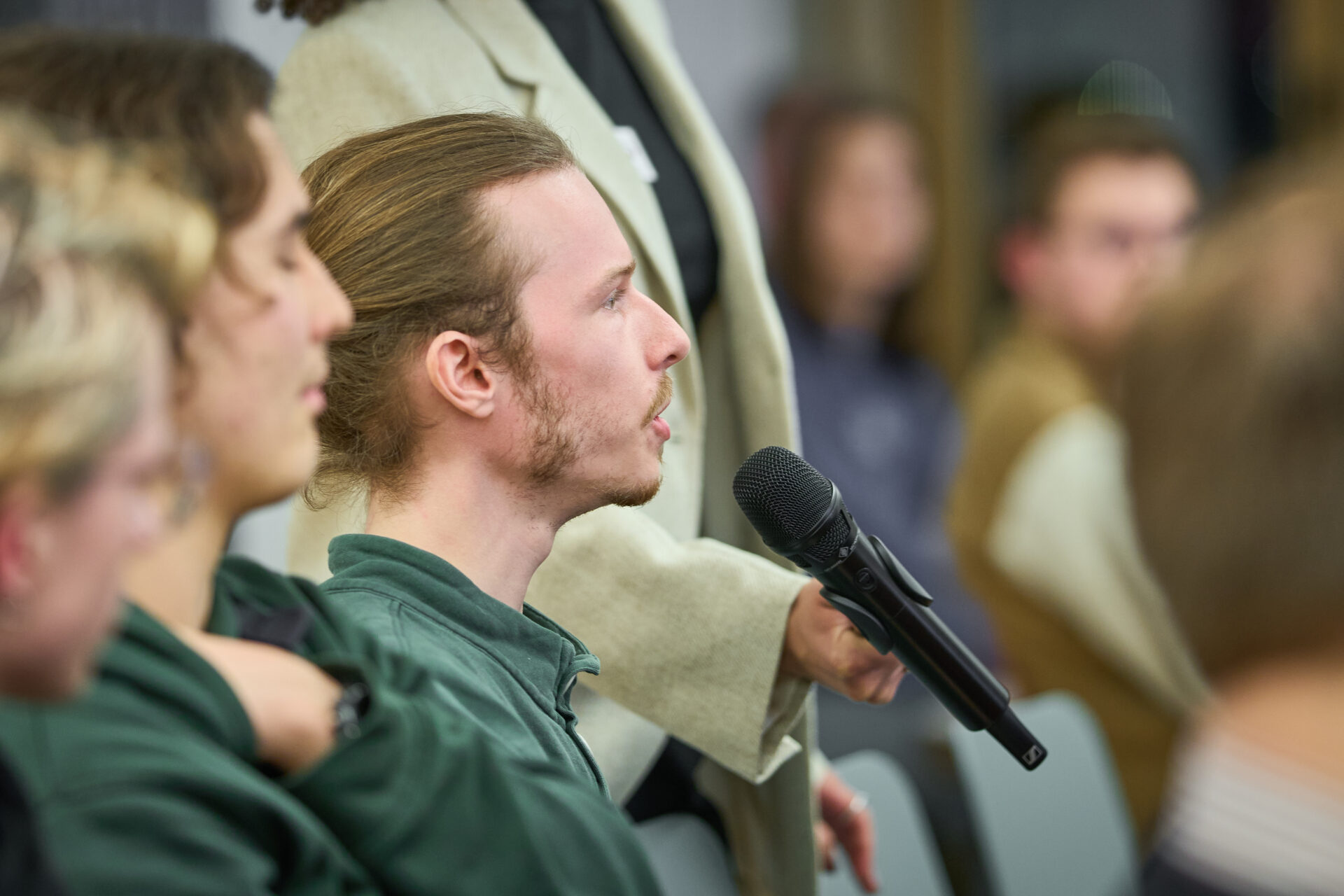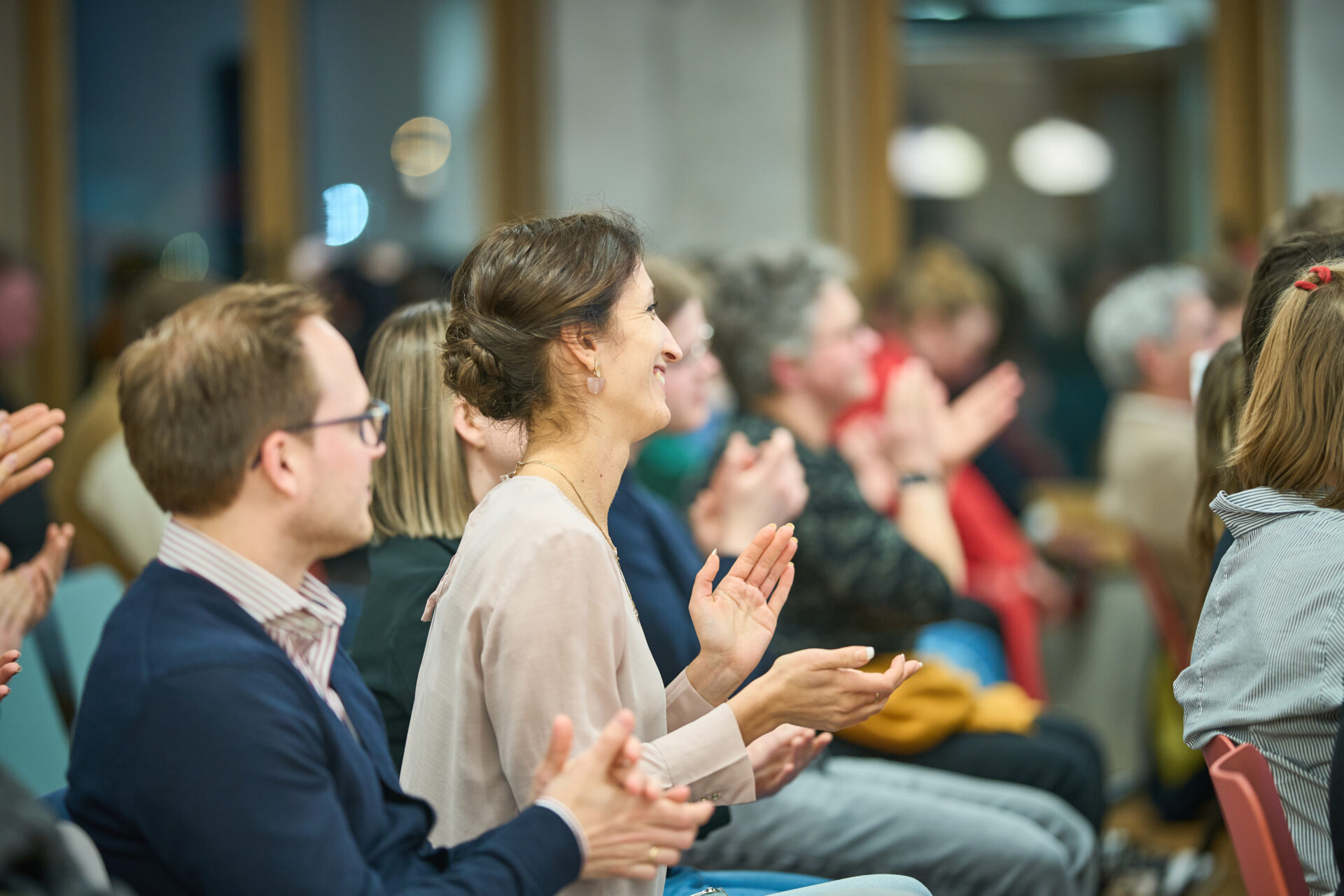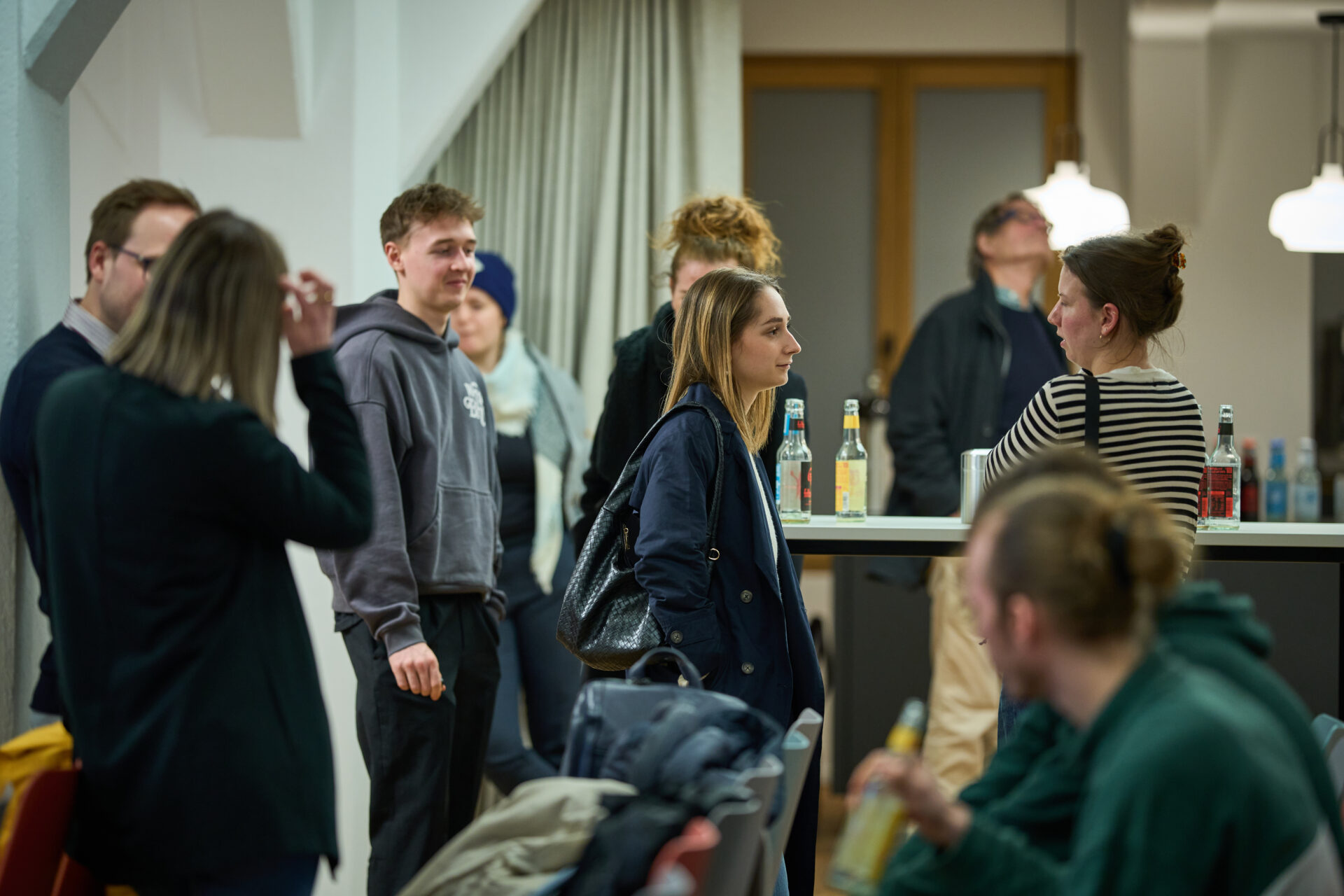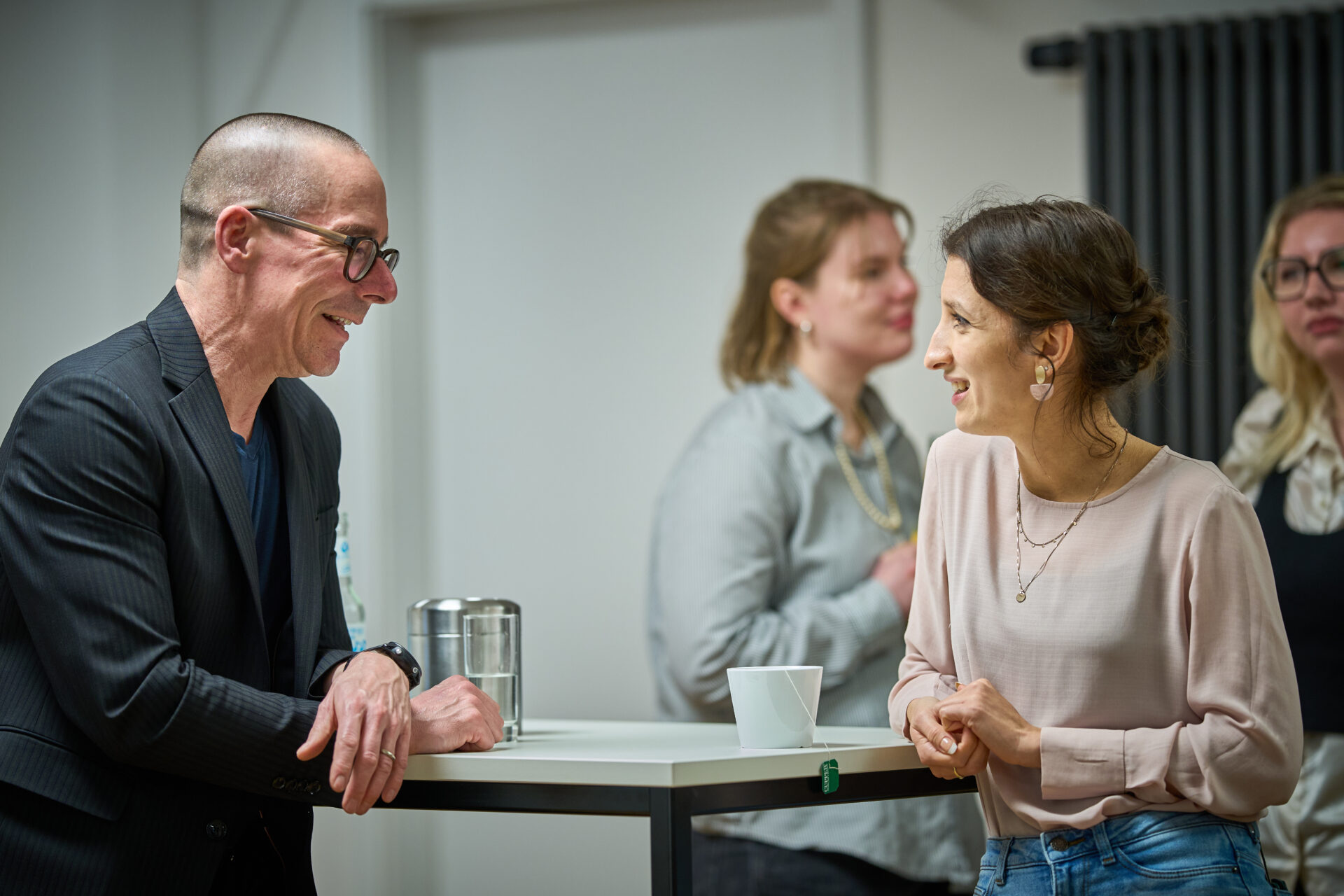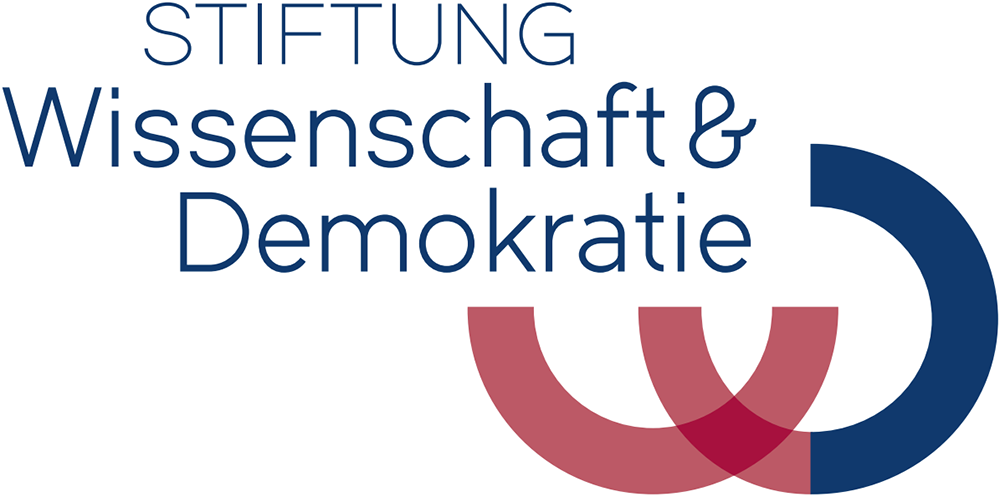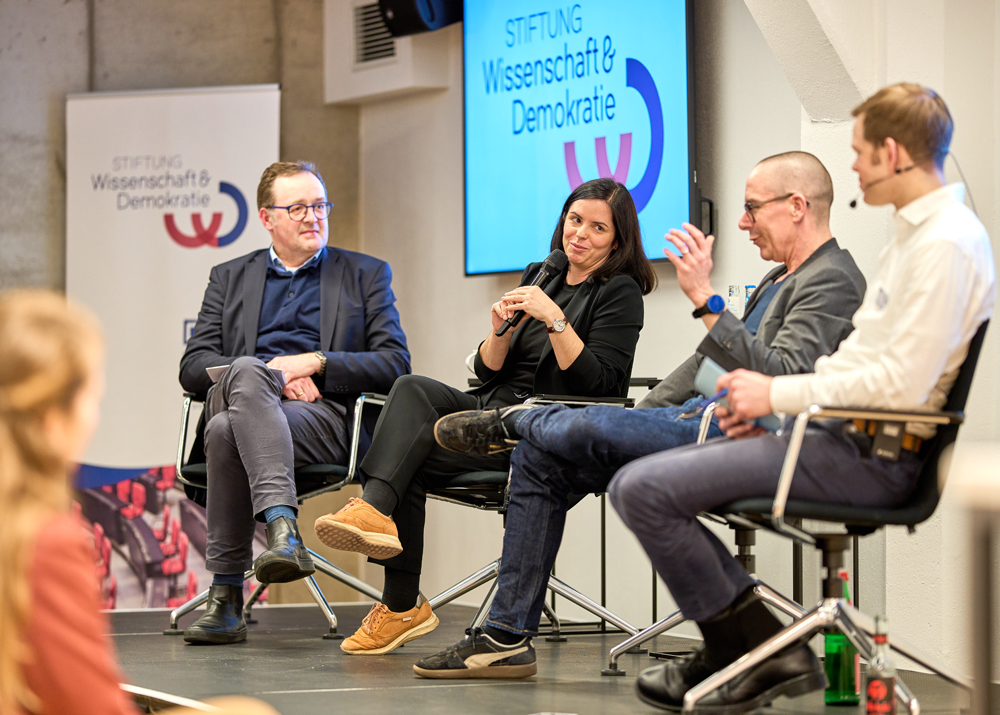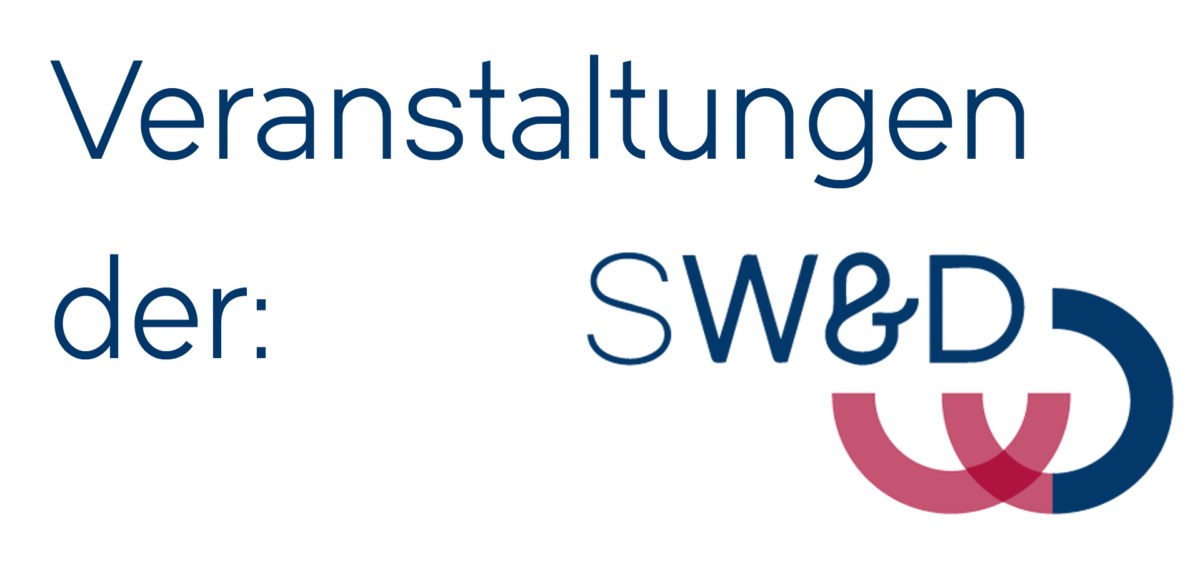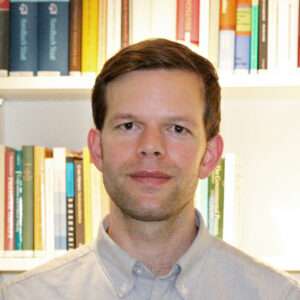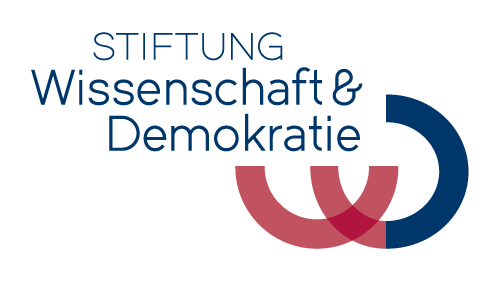In a democracy, when the sovereign has spoken by casting their vote in a parliamentary election, you would think that the political situation would be clear. However, the opposite is usually the case. The results of the election often puzzle even political observers: Not only do the results of the individual parties often deviate from previous polls, they are also often difficult for experts to explain. Apart from obvious surprises in the election results, "voter migration" in particular is the subject of public and academic debate. The questions of which social groups and milieus voted for which party and which issues significantly influenced their voting decisions are also usually discussed.
In addition, especially in states with proportional representation, coalition negotiations between the parties only begin after the election. In the early federal election on 23 February 2025, it was assumed - with a certain degree of optimism - that after the collapse of the traffic light coalition and the subsequent red-green minority government, there could once again be a parliamentary majority that would ensure politically clearer conditions: It was not without good reason that large sections of the population were hoping that a new government would emerge from the new majority.
In order to bring clarity to this mixed situation after the federal election, political scientists from Kiel University were guests at the Foundation for Science and Democracy on two occasions in the weeks following the election: On 26 February 2025, Prof. Dr Simone Wegmann, Prof. Dr Wilhelm Knelangen and Prof. Dr Christian Martin exchanged initial impressions and explanations of the election result in a panel discussion moderated by Jan Meyer (SW&D) and gave an outlook on possible constellations and processes of government formation in the coming weeks. On 6 March, Christian Martin was once again a guest, this time giving a detailed analysis of the election results in an individual presentation.
A landmark election in uncertain times
Both in the discussion and in the lecture, it became clear that this election was extraordinary for several reasons due to the political circumstances and crises. Firstly, the AfD's high poll ratings in the run-up to the election meant that democracy was perceived as being under threat and that the election was seen as a landmark in this context. Dr Astrid Kuhn, who gave a welcome speech at the panel discussion as Chairwoman of the Board and Managing Director of SW&D, expressed what was probably on the minds of most of those present on election Sunday: the hope that the vast majority of voters would vote for a democratic party. The good result for the AfD, which entered the Bundestag as the second strongest party for the first time, could have been even higher given the polls in the weeks before the election - for Simone Wegmann, the fact that the election result fell short of expectations was even the surprise of the election evening.
In the 1990s and 2000s, "political disenchantment" was seen as a threat to German democracy, but today this concern seems unfounded, at least in terms of voter turnout: At 82.5 per cent of eligible voters, more people went to the polls than at any time since 1998. In view of today's widely proclaimed crisis of democracy, this voter turnout could at least be a glimmer of hope. However, the participants in the panel discussion took a different view. Christian Martin, for example, pointed out on both evenings that the AfD in particular had benefited from the high voter turnout, as it was able to win the most votes from the group of non-voters. For him, the voter turnout was not good news, as in this case it had contributed to the strength of an anti-democratic party.
Strategies for dealing with the AfD: the firewall debate
The AfD and how to deal with it was the main topic of the panel discussion. The debate centred on the "firewall" that had been erected against the AfD in order to protect democratic institutions from being taken over by the AfD. The fact that Friedrich Merz, as the CDU/CSU's candidate for chancellor and the only one with a realistic chance of winning this office, forced a vote in the Bundestag in which he deliberately accepted a majority with the AfD had earned him criticism from the left to the centre of the party spectrum. The academics present agreed that the joint vote with the AfD was a mistake.
In this context, both the CDU/CSU and the "traffic light" parties were of the opinion that the AfD could be weakened by adopting their issues and, in some cases, their demands. Christian Martin in particular pointed out that this approach could not work and that the political science findings had left no doubt about this for years. Simone Wegmann and - for once - Wilhelm Knelangen emphatically agreed with him on this point: Merz had not only failed to win over new voters as a result, but had also weakened his options with regard to forming a successful coalition with the SPD or the Greens. Merz's "going all-in", Christian Martin summarised in his presentation the following week, had not worked.
The observation that political science findings on this strategic approach are largely ignored in politics did not seem to come as a great surprise to the speakers. Even though Christian Martin offered an explanation - weakening populists by adopting their positions is a simple and therefore obvious solution for politicians - it was clear that they would like to see more attention paid to political science research in politics.
In view of the CDU/CSU's voting behaviour and the derogatory statements made by some of its politicians towards the SPD and the Greens in particular, the participants in the panel discussion saw the formation of a coalition as a major challenge. However, they emphasised that a quick agreement was actually particularly urgent in view of the current problems. In foreign and security policy in particular, a government capable of acting is indispensable in view of the unpredictable behaviour of the second Trump administration.
How can the election result be explained?
In the panel discussion, however, the academics emphasised that some topics of the election campaign had been neglected or miscommunicated. Christian Martin, for example, pointed out that demographic change would soon overburden the pension system. Climate change had also hardly been an issue. With regard to migration as a central topic of the election campaign, the speakers pointed out that there had been a problematic confusion between migration and internal security: Instead of talking about internal security problems, whose direct connection to migration is questionable, the migration issue overlooked the fact that it has not only negative but also positive effects and is even necessary in view of the shortage of skilled labour.
However, as Christian Martin explained in his in-depth presentation, no single issue was decisive for the outcome of the election. Rather, post-election surveys showed that, in addition to internal security and migration, external and social security as well as climate policy had a similarly high influence on respondents' voting decisions. Martin presented further explanatory factors for the election result, also focussing on the AfD: the data he presented showed that the proportion of people employed in industry in a particular region, the lack of an academic degree and the unemployment rate in particular had a positive effect on the AfD's election result. In urban areas and places with good internet connections, the AfD tended to gain fewer votes. It is worth noting that the AfD's strongest gains were no longer in the east, but in the west: Against this background, interpreting the party's strength as an East German phenomenon is no longer tenable.
Nevertheless, he was able to identify a very revealing difference between East and West from a political science perspective. The distribution of party positions in the political spectrum is more similar to the Eastern European than the Western European party landscape. This can be clearly seen in the positioning of the parties according to their economic (left/right) and socio-political (liberal/conservative) positions. While the parties in Western Europe can generally be categorised along an axis from right-wing conservative to left-wing liberal, the party structure in Eastern Europe is oriented between a left-wing conservative and a right-wing liberal pole. The BSW, which can be categorised as left-wing in economic terms but conservative in socio-political terms, thus fills a gap in the (East) German party system.
Both the panel discussion and the in-depth presentation by Christian Martin stimulated a lively discussion among the audience. It was possible to gain a good impression of the extent to which the election result and its political consequences are and will continue to occupy the citizens of Kiel. At the same time, it became clear that political science expertise is particularly in demand in times of uncertainty.
If you were unable to attend the events or would like to watch the events again in more detail, you can watch the panel discussion and the lecture (again) in the following videos.
Video recording "After the Bundestag election 2025 - Part I: First impressions @SW&D - Panel discussion"
Video recording "After the Bundestag election 2025 - Part II: Analysis of the results @SW&D by Prof Dr Christian Martin"
Impressions














